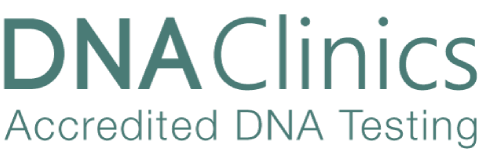Sibling DNA Testing
Sibling DNA testing can determine if the biological relationship is one of full or half siblings. In addition, it is also possible to say if people are unrelated.
A sibling DNA test is used to answer questions such as:
Do we have the same father? Are we full siblings or half siblings? Are we half siblings or unrelated? We have the same mother, but do we have the same father?

How does Sibling DNA Testing work?
First we compare the DNA profiles and determine the likelihood of a relationship. In other words, the likelihood that the participants are biologically related. This can be as full siblings, half siblings or unrelated.
The test works on the fact that a child inherits half of his or her DNA profile from each of their parents. For instance, half the child’s DNA profile matches their mother, and the other half matches the father. As a result, the DNA of full and half siblings will show an increased amount of genetic material in common. In comparison to when compared to the DNA of unrelated individuals.
We use the values from the calculations to generate a percentage probability. This will show which relationship is most likely to exist between the individuals.
Frequently Asked Questions
How long does it take to get Sibling DNA Test results back?
The analysis time needed in the laboratory for the Sibling DNA Test is three to five working days*. We will always endeavour to get the results to you as quickly as possible. However, during busy periods in the lab, results may only be available on the fifth working day.
* Quoted lead-times are based on from when samples are booked onto the laboratory system. Also, quoted lead-times do not apply when issues arise from documents or samples provided that do not meet our quality guidelines.
When should other forms of DNA test be used?
The reasons for taking part in a paternity, sibling or grandparent DNA test, are usually very similar. First is that there are potential biological relationships that exist between test participants. Second is that the evidence to support that biological relationship does not exist. In other words, the evidence is lacking or has been brought into question.
In the UK, the identity of a person’s biological mother is rarely questioned. So, DNA tests are used to gather evidence relating to the paternity (biological father) of one or more of the test participants.
To extract as much information from a DNA test, it is important to test the most direct relationship possible. For example, a test between parent and child, will always produce more conclusive results than a complex test. For instance, DNA tests such as sibling or grandparent, test for relationships further removed from a direct genetic link. These tests can be very accurate. But they cannot replace the tests that directly analyse and compare the DNA of a potential biological parent.
How do I order a Sibling DNA Test?
Here are the options available to you:
- Order a free sibling test from DNA Clinics*.
- Call 0800 988 7107 to make an appointment at a DNA Clinic or order a *DNA self-collection Home Kit.
- Call 0800 988 7107 to arrange a home visit from a sample collection officer.
- You or your solicitor can contact us to organise a legal sibling DNA test for court purposes.
* Please note, you can only use self-collection kits for peace of mind purposes only. This test cannot be used for legal purposes.
How do I collect my own sibling DNA samples?
We have provided some useful guidance for test participants collecting their own samples for a DNA sibling test.
What is the Accuracy of a Sibling DNA Test?
Sibling DNA tests are very accurate. We achieve conclusive DNA results in many cases. But, as with any DNA test of this type, there is a small chance that the test will yield an inconclusive result. In addition, the risk of an inconclusive result depends on who is available to take part in the test. Please call and speak to a Clinical Advisor for the latest information regarding inconclusivity rates.
Inconclusive results are not the same as negative results. An inconclusive result means that the analysis cannot provide an answer to the question asked. Inconclusive results occurs in only a small number of DNA tests. Causes of inconclusive results in include:
- The DNA markers that show matches between test participants are very common in the general population. As a result, the matches do not provide enough evidence to confirm if a biological relationship exists.
- There is a lower level of DNA matches than expected. This is due to the chance nature of inheritance in families.
- Where matches may have occurred, mutation has changed the DNA marker. As a result, this can cause mismatches at further locations within the DNA profile.
Please refer to the disclaimer on this page for further information.
Sibling DNA test example
A male and female believe they may have the same biological father. They know that they have different biological mothers. If the alleged father is available to take part, then we would recommend a paternity test.
What is the alleged father is not available? The parents of the alleged father (the potential paternal grandparents) can take part in a test. As a result, the duo grandparent DNA Test would be the next test recommended.
Furthermore, what if a DNA sample is available from one or more of the participant’s biological mothers? In this case, then we would recommend a sibling DNA test or a single grandparent DNA test.
These tests can also be performed without the inclusion of a DNA sample from the mother(s). But a DNA sample provided by the mother would increase the information provided to the laboratory for analysis. We would recommend this as it will increase the chance of a more conclusive DNA test result.
Please note. complex tests such as sibling or grandparent DNA tests, will not state the identity of alleged biological parents. In other words, the alleged father will not be stated in the DNA test report.
How much does a sibling DNA test cost?
You can see examples of sibling DNA test prices using the link below
Disclaimer
Due to the science of complex DNA relationship testing and the chance nature associated with DNA inheritance, there is a small risk of an inconclusive result with this test. An inconclusive result means that the DNA analysed and compared between individuals does not provide enough evidence to establish the biological relationship being tested. The risk of obtaining an inconclusive result varies due to several factors including, the test participants available for testing, the individual’s specific DNA profiles and how unique or common they are and the number of locations on the gene tested.
It is important that you are aware of the risk of an inconclusive result before ordering or booking this test, as you will be signing consent to confirm your understanding and acceptance of this. Refunds will not be issued for inconclusive results.
However, we will always attempt to achieve a conclusive result for your DNA test. As such, there may be further options available to you to achieve this. These are:
- The addition of other test participants, including other known siblings or parents. Additional costs will apply after any initial testing has taken place.
- The standard complex tests analyses 23 locations on the gene. It is possible to test a further 20 locations (total of 43), which increases the chance of a conclusive result. There are two options for this:
- If the 43 loci test is ordered from the beginning, the additional charge is only £30.
- If the 43 loci test is ordered after a standard complex test produces an inconclusive result, the additional charge is £60.
If you are using the DNA Clinics service and booking an appointment, the above options will be explained to you. If you are ordering a self-collection kit, please call 0800 988 7107 and speak to a member of our team about these options before you order a DNA kit.
Local DNA Clinics, and mobile locations throughout the UK
For your convenience, we have a network of DNA Clinics throughout the UK. As a result, we can provide sibling test appointments for you in your local area. Alternatively, we can arrange for a certified sample collection officer to visit your home or other convenient location of your choice.
Head Office
Crystal Health Group
The Old Chapel
Manchester
M30 0NG





